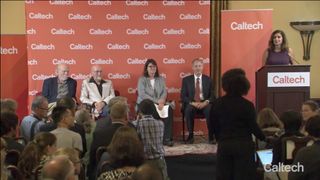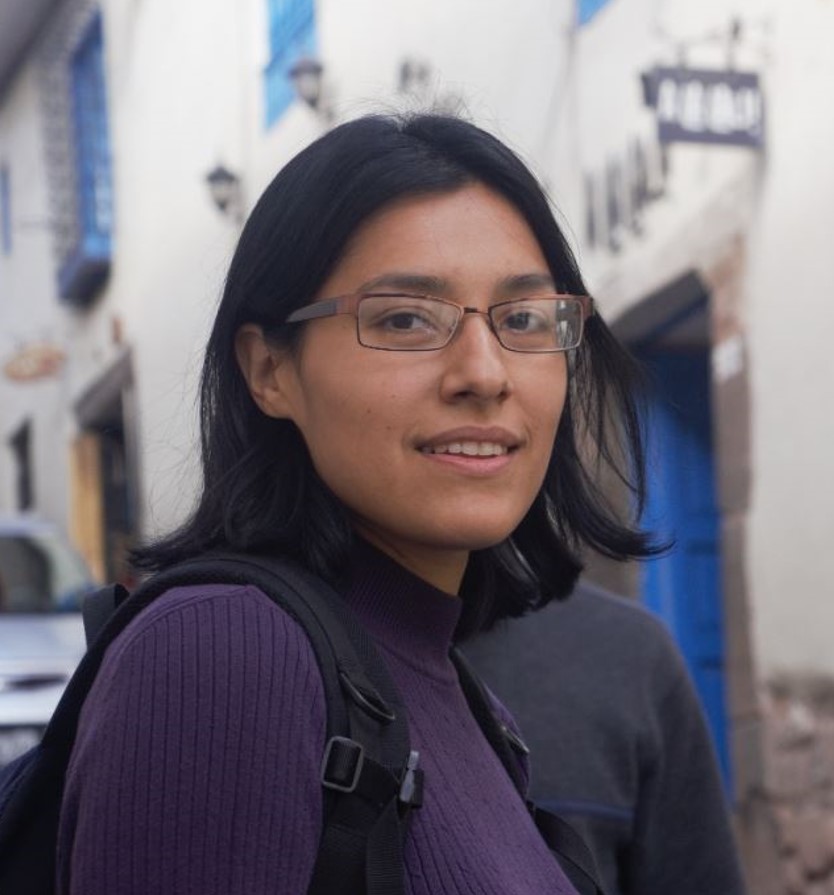Thrilled and Humbled: 2017 Physics Nobel Prize Winners Share Their Reactions

At events celebrating the 2017 Nobel Prize in physics Tuesday (Oct. 3), three scientists revealed their humorous and touching reactions to discovering that they had received one of science's greatest honors.
"I was in bed! My wife, who doesn't sleep well, answered the phone," Rainer Weiss, one of the winners, said candidly during a news conference Tuesday at the Massachusetts Institute of Technology, where he is an emeritus professor. "We were all quite nude ... Now that you asked, I'm telling you!"
Early Tuesday, the Nobel Prize in physics was awarded to Weiss, Barry Barish and Kip Thorne for discovering the space-bending proof that time and space are linked like a fabric, and that there are massive forces, like black holes, that can stretch it.
Weiss, along with Barish and Thorne, both with the California Institute of Technology, produced the first physical evidence of space-time flexing from the collision of two black holes. On Sept. 14, 2015, their work on the Laser Interferometer Gravitational-Wave Observatory (LIGO) finally validated a century-old theory.
Albert Einstein first predicted gravitational waves more than 100 years ago, in his 1916 famous paper proposing general relativity. He imagined them to be the ripple effects caused by the interactions of ultramassive objects. According to Weiss, LIGO detected a change in instrument length of less than 1/1000 the size of a proton.
After four decades of pursuing evidence that could detect the gravitational waves that Einstein believed to exist, the ambitious LIGO project succeeded in, as Thorpe put it on Tuesday, "a half century quest."
"My feelings at the time were a complicated mixture of being thrilled and being humbled," Barish said at a Caltech news conference on Tuesday.
In fact, it was such an honor to receive the award that Weiss was initially a bit skeptical when he received the call. It took some deduction to make sure he wasn't being pranked, he said at the MIT news conference.
"All I know is that I figured it wasn't a phony," Weiss said. "I'll tell you why. The guy had this very subtle Swedish-English accent, and I said, 'That guy probably is all right, unless they're pulling a spoof on me.' It could have been anybody in the group calling me up. I can't give you a better answer." (Swedish and Norwegian institutions bestow the prestigious award, which is what made that regional accent a key piece of evidence.)
Back at the Caltech news conference, Thorne got choked up as he discussed how LIGO's success paves the way for future research and the astrophysical questions that can soon be explored.
"I am really moved by the vision of what's going to be done in the coming decades — particularly, exploring the birth of the universe," he said. "And they are dreams that I still hold near and dear to myself."
Follow Doris Elin Salazar on Twitter @salazar_elin. Follow us @Spacedotcom, Facebook and Google+. Original article on Space.com.
Join our Space Forums to keep talking space on the latest missions, night sky and more! And if you have a news tip, correction or comment, let us know at: community@space.com.
Get the Space.com Newsletter
Breaking space news, the latest updates on rocket launches, skywatching events and more!

Doris is a science journalist and Space.com contributor. She received a B.A. in Sociology and Communications at Fordham University in New York City. Her first work was published in collaboration with London Mining Network, where her love of science writing was born. Her passion for astronomy started as a kid when she helped her sister build a model solar system in the Bronx. She got her first shot at astronomy writing as a Space.com editorial intern and continues to write about all things cosmic for the website. Doris has also written about microscopic plant life for Scientific American’s website and about whale calls for their print magazine. She has also written about ancient humans for Inverse, with stories ranging from how to recreate Pompeii’s cuisine to how to map the Polynesian expansion through genomics. She currently shares her home with two rabbits. Follow her on twitter at @salazar_elin.
